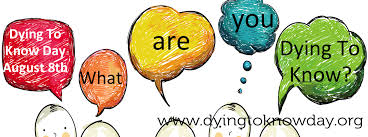The passing of Goenka Ji last week has again had me thinking about silence - in particular how vitally IMPORTANT it is, and how DIFFICULT it is to achieve!!!
For those of you who don't know much about this Goenka fellow he popularised the practice of Vipassana Meditation - a meditation which requires 10 DAYS of silent meditation - no talking, giggling, singing, reading, writing, exercising, eye contact with others, touch - no interactions of any kind other than to focus your mind on your respiration and physical sensations for 11 hours a day. (There's a lot more to it than that but that's a story for another day.)
The point here is TEN DAYS OF SILENCE!!!! Think you could do it?? Well I must admit - and I don't usually share this - the girls in my boarding room and I started talking to each other on day 7 (gasp)!
The truth is, silence is something we are unconditioned to in our Western culture - and we really, REALLY struggle to allow it into our daily lives, or at least to acknowledge it and enjoy it.
Picture this - you're driving to work, you've been on the road for about 20 minutes then realise the radio isn't on - what do you do? You turn it on of course! Everyone is out in the garden but for no reason you know of, the TV is on. It's the weekend - you have no real responsibilities or people accountable to but you leave the sound on your phone on just so as not to miss a call. Your alarm goes off every morning regardless of the fact you only need to wake up at that time 5 days a week and so on and so on......
All these random sounds of daily living - the machines, gadgets and people around us - they get in the way of our calm! They disrupt our peace of mind, make it difficult to concentrate, mess with our flow and put 'bristles' in our energy fields! And this happens day after day after day after day after..... (you get the idea).
So hear are five REALLY EASY and EFFECTIVE tips on how you can welcome bits of silence back into your daily lives:
1) KEEP YOUR PHONE OUT OF THE BEDROOM
Yes, you may need an alarm - so buy an old fashioned bedside alarm clock! An alarm clock makes a REALLY annoying noise too - but it only happens once a day. By keeping the mobile off limits in the bedroom you eliminate the text beeps, the email beebs, the ringtones, the click, click, click of the keypad. And if this isn't enough motivation think of all the extra quality time you can be having in the bedroom once it's a phone free zone (wink, wink, nudge, nudge)...
2) TURN THE RADIO OFF FOR THAT SWEET SOUND
The sweet sound of silence that is. This is really important in the car - on the way to work, on road trips, family holidays etc. If you are having conversations or playing car games turn the radio off! You'll concentrate better on the people around you plus you won't be overloading your poor minds with layers of sounds and distracting noise. Try turning the radio or music off regardless of whether you have others in the car with you or not. 5 minutes of silence every now and again gives you heaps of clarity and I find the best ideas come to me when I'm driving :)
3)MAKE SOME DAILY QUIET TIME
This is not about having complete silence all around you but about you consciously considering this to be your quiet time. Obviously announcing to the family that you'll be expecting 30 minutes of silence every morning while you have your coffee and paper isn't going to work for most! So aim small - your quiet time might be while you hang out the clothes, check your emails at the beginning of the work day, go for a run or do the groceries. For me it's at bath time. When I bath my daughter I let her play and splash whilst I quietly watch and enjoy a sneaky half glass of red! Of course I help her and talk to her when she needs or wants me but on the whole we've fallen into a lovely pattern of her having independent play time in the bath while I rest and watch. Quiet time is total bliss!!
4)USE A QUIET TIME SIGN
OK so this one may take a bit of time to catch on to those around you - but, just like when introducing any other rule, a 'Shhh, it's my quiet time' sign (or something to that effect) will eventually catch on and it really works! Hang it on the bathroom door while you have a bath, hang it on your desk when you need to stop gossiping with your colleagues and actually get some work done, put it at the front door if you don't want people knocking or on your bedroom while taking a nap. Don't leave the sign up all day or people won't take it seriously. Keep it up for half an hour so they know you mean business and to keep it an achievable goal.
5) TURN OFF THE TELEVISION WHEN NO ONE IS ACTUALLY WATCHING IT
This is a no-brainer but for some reason we have trouble doing it. It's fairly safe to say we've become so conditioned to having noise constantly surrounding us that we don't even realise the TV is on. Sad isn't it!

So there you have it!
Implementing these 5 gems into your routine will make the world of difference to your qui! Eliminating many random noises of daily living and being consciously aware of the quiet times in your day will make ridiculous amounts of difference to your frame of mind. It's true - silence is golden :)











